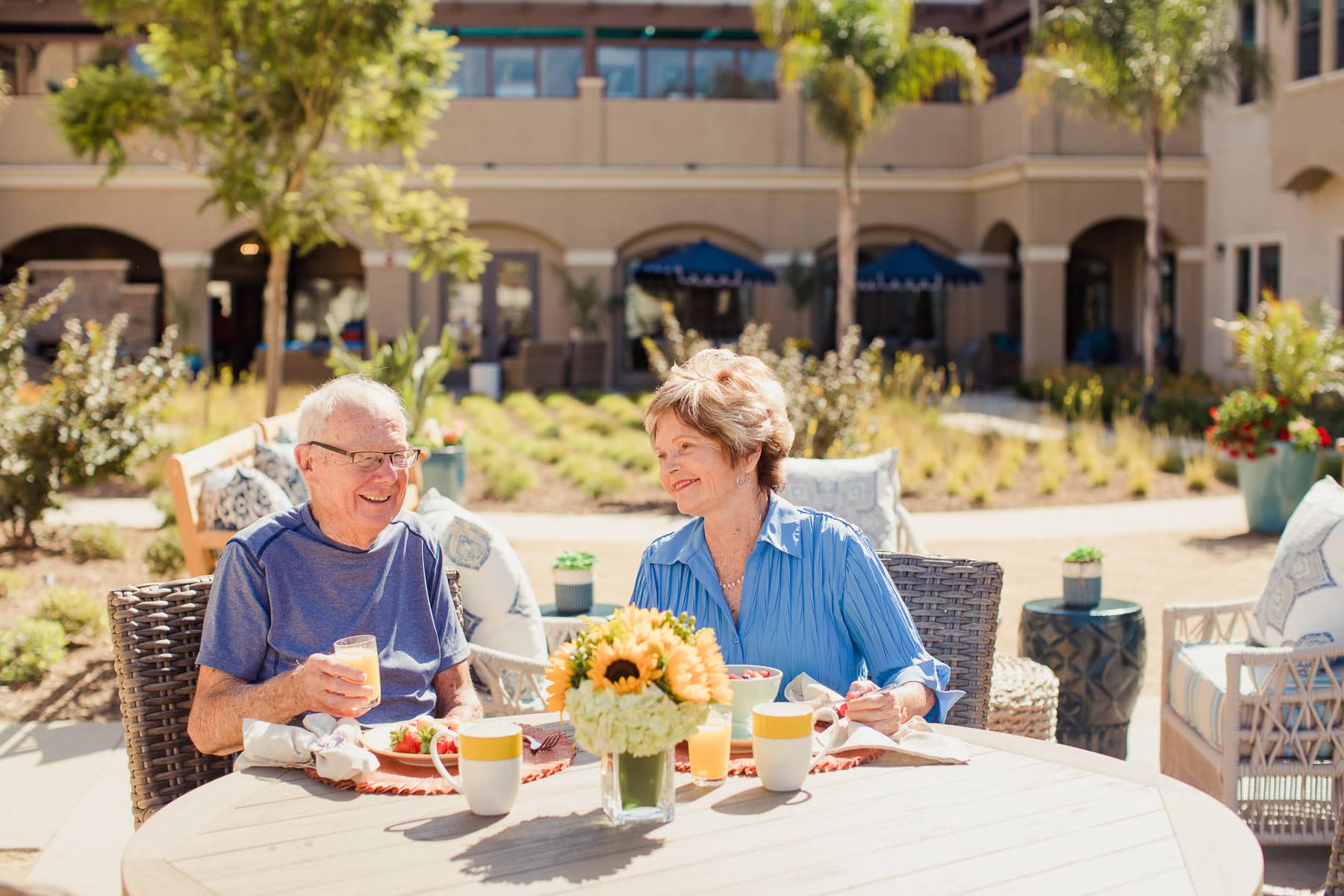Signs of memory loss or decreasing independence in loved ones can cause a lot of stress, especially during the holidays.
Even if you’ve been providing care to a loved one, you may find that the physical and emotional toll is too much.
Fortunately, assisted living communities such as The Kensington Sierra Madre provide excellent care that differs greatly from the ideas you may have of traditional senior living.
Learn why choosing assisted living is the best, safest option for your loved one, and how you can begin the discussion with family.
When Choosing Assisted Living is the Best Option
Sometimes, despite our best efforts, we are unable to care for a loved one in the ways that they need. There is no shame in this — most caregivers are not medical professionals themselves. They have jobs and families of their own to care for as well.
Rather than focusing on what you are unable to do for your loved one, you can shift the focus. Understand that you have provided the best care that you could, and now you can continue to do what’s best for them.
Part of this process is recognizing the signs that your loved one needs more support than you are able to provide.
To determine this, look to the activities of daily living (ADLs):
- Moving and walking independently
- Feeding self
- Dressing self
- Grooming and bathing self, and maintaining dental and hair care
- Controlling bladder and bowel function
- Getting to and from the toilet
Make note of your loved one’s ability to perform these activities on their own.
If they are struggling with any of these activities, they may need additional support from a community that provides this assistance.
Signs a Loved One is Experiencing Memory Loss
If your loved one is showing signs of memory loss, finding the right community for them is of even greater importance. It’s recommended that you start looking in the beginning stages of dementia or other diseases, and not wait until their condition worsens.
Some communities, such as The Kensington, offer memory care in addition to assisted living.
Watch for these early signs of dementia:
- Increasing memory loss
- Trouble concentrating
- Trouble with familiar daily tasks
- Difficulty following conversations or finding the right words
- Confusion about time and place
- Changes in mood, behavior, or personality
Some causes of dementia are more simple, such as medication side effects or vitamin deficiencies. Other times, it is the beginning of Alzheimer’s disease or Lewy body dementia.
The right memory care community can properly care for your loved one no matter the cause of their memory loss.
The Kensington Sierra Madre has two dedicated memory care neighborhoods, Connections and Haven. Each neighborhood is designed to match the level of care and security your loved one needs, whether it be the beginning stages of memory loss or more advanced stages.
Connections
This neighborhood is for early to middle stage Alzheimer’s and dementia care. It’s designed specifically for residents who show increasing signs of memory loss but still retain a large degree of independence. Our goal is to help residents independently engage in activities that give meaning and purpose to their lives.
Haven
This is our neighborhood for middle to late stage Alzheimer’s and dementia care. Haven residents in this neighborhood receive a higher level of assistance and care. Our goal is to maximize comfort, minimize agitation, and soothe compassionately. We also strive to offer residents opportunities to become involved in ways that are meaningful.
The Kensington is equipped to rapidly adapt to your loved one’s changing needs.
How to Talk to a Loved One About Moving
The decision to move a loved one to an assisted living or memory care community can be difficult and emotional. If your loved one has lived at home, they may not welcome the idea of moving.
Having these difficult conversations as early as possible can help your loved one gradually accept the idea, and allow them to ask questions to be as prepared as possible.
It’s helpful to put together a list of communities prior to this discussion, and include the stand-out features and costs of each.
Attractive features might include:
- Beloved pet allowances
- Living with their spouse
- Fitness or therapy options
- Life-enrichment activities
- Dining options
- Furnishings and cozy living spaces
Then, you and your loved one can move forward with the level of involvement they prefer. You can call communities together, look at virtual tours, or visit in person, if it’s safe to do so.
Emphasize the levels of care available to your loved one, and how medical professionals will be available to them at all hours of the day if they need support.
Remind them that choosing the right assisted living community can allow you both to focus on enjoying your time together, since all other responsibilities will be taken care of.
The Kensington Difference: Safe, Loving Care
What makes The Kensington Sierra Madre different from other assisted living communities?
Our Promise is to love and care for your family as we do our own. This promise is extended to all aspects of care, and is the reason we are able to offer a full spectrum of clinical support.
The Kensington cares deeply for our residents’ health and happiness, which is why we provide a true home to them where they can comfortably “age in place” no matter how their care needs change over time.Call us today to tell us more about your loved one’s unique needs, and to learn how our team can help them successfully transition to a community.



